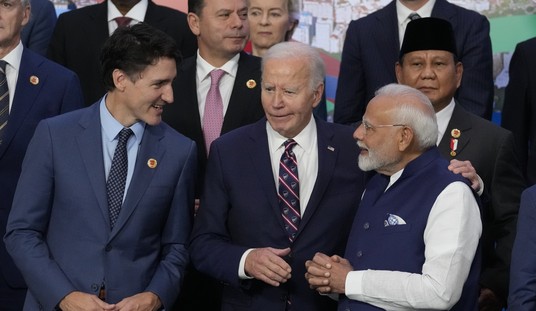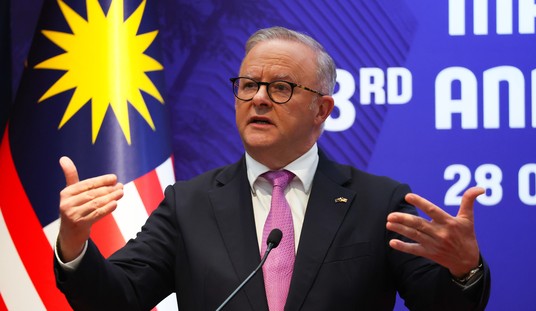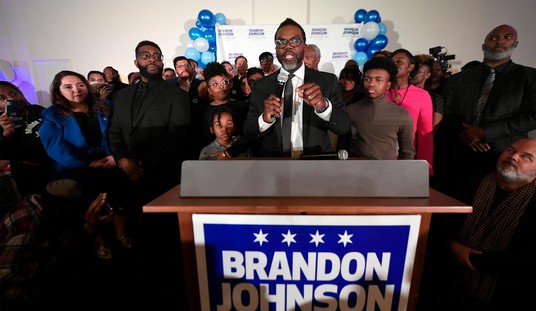Everyone loves populism, as long as they can control it. If that sounds like a contradiction in terms to readers, welcome to the 2016 presidential cycle. Both parties have stoked grassroots populist fervor over the last few years in order to generate passionate turnout among the base. For Republicans, it’s the Tea Party, and for Democrats, it’s the progressive Occupy Wall Street activists and supporters. Both take aim at their vision of the “establishment,” and even have some overlap on how they define it.
One thing is for certain, though, and that is that the establishment in both parties want to control it, and perhaps even stifle it altogether in the Democratic Party. The establishment in the GOP seems to be coalescing around Jeb Bush, to the extent that Bush is now asking donors to hold off on giving him anything over a million dollars:
An unusual request has gone out to wealthy donors writing large checks to support former Florida governor Jeb Bush: Please don’t give more than $1 million right away.
The requested limit, confirmed by multiple people familiar with the amount, may mark the first time that a presidential hopeful has sought to hold off supporters from contributing too much money.
The move reflects concerns among Bush advisers that accepting massive sums from a handful of uber-rich supporters could fuel a perception that the former governor is in their debt. The effort is also driven by a desire to build as broad a pool of donors as possible among wealthier contributors.
So even as Bush is headlining a series of high-dollar events for a super PAC backing his bid, fundraisers have been instructed not to ask donors to give more than $1 million per person this quarter.
As I noted yesterday, the Democratic establishment is taking a more direct — and negative — approach. “Centrists” have formed the New Democrat Coalition (NDC), which will explicitly aim at marginalizing Sen. Elizabeth Warren and her Occupy-style progressive populists in a thinly veiled attempt to defend Hillary Clinton:
“I have great respect for Sen. Warren — she’s a tremendous leader,” said Rep. Scott Peters (D-Calif.), one of the members working on the policy proposal. “My own preference is to create a message without bashing businesses or workers, [the latter of which] happens on the other side.”
Peters said that if Democrats are going to win back the House and Senate, “it’s going to be through the work of the New Democrat Coalition.”
Both parties appear to be defending themselves against populism — the GOP by pre-empting it, and Democrats by silencing it. Salena Zito of the Pittsburgh Tribune-Review has watched the populist phenomenon grow for quite some time, and has warned for months that it takes a particularly anti-Washington tone once one gets out of the Acela corridor:
Washington’s Democrat elites have hemorrhaged “flyover country” Democrats from state legislatures, congressional districts and governor’s offices, thanks to the rhetoric they have whispered into the D.C. media’s ears or posted on social media.
Just last week, for example, everyone in Washington suddenly appeared to be writing the same story about how “powerful,” “liberated” and “unbridled” Obama has become since the midterm election. That wasn’t investigative journalism at work, folks; that was off-the-record conversations with the man in the White House.
The populist movement of the moment crosses party lines; soon it will begin to split apart, as the 2016 presidential candidacies and primaries unfold.
Based on the distrust that movement’s followers have for Washington and its media, it is incredibly unclear how this will all play out. And anyone who tells you differently is lying.
Both parties risk losing the electorate with these strategies, but that’s not to say that the opportunities are equal for both if they wake up to that risk. In my column today for The Week, I point out that a Republican conservative-libertarian agenda added to credible and legitimate outside-the-Beltway presidential candidates gives the GOP a tremendous leg up in 2016 … if they realize it:
The populist pull may threaten Republicans less in 2016, though, for two reasons. First, they have more options for president, most of whom come from outside the Beltway, and even those who do — such as Ted Cruz and Rand Paul — are seen as anti-establishment, fighting against crony capitalism and the consultant class. Second, the anti-Washington tone of the populism fits the conservative agenda of smaller government and devolved powers through federalism.
The populism that is “alive and humming across America,” as Zito puts it, will present bigger problems for Democrats in the next cycle. Their traditional agenda envisions a greater and more active role for the federal government, and therefore for Washington. Their presumed presidential nominee has been a creature of Washington for three decades. And even worse, their potential populist contender wants to make Washington even more central to the lives of voters than the overall Democratic Party agenda. …
Progressive populists continue to push for Elizabeth Warren to challenge for the Democratic nomination, but Warren’s policy preferences favor Washington-based interventions. Her biggest project, Dodd-Frank, was supposed to end Too Big to Fail, but a Harvard Kennedy School study shows that bank consolidations have accelerated because of the regulatory burden of Warren’s law. Big banks are getting bigger while small community banks are disappearing, and agricultural loans are disappearing along with them.
That’s why the NDC effort is a great example of irony. Either way, they’re selling Washington when no one’s buying it:
The Democratic establishment wants to tamp down progressive populism in favor of a top-down message that supports a top-down agenda. While the GOP may be internally dysfunctional at times, it at least has options to address its party’s anti-establishment populism. Democrats appear ready to not only answer it with a candidate who’s the ultimate establishment insider, but to shut down any populist impulse that might truly lead them to a more responsive posture. Either way, it’s Washington or bust for Democrats, and that will be a tough sell indeed in this environment.
Let Democrats try to make that sale. Republicans need to stop looking for an establishment candidate and unleash their smaller-government agenda with a New Guard presidential candidate. That will sell itself, especially if Democrats can’t get past their Clinton nostalgia.








Join the conversation as a VIP Member